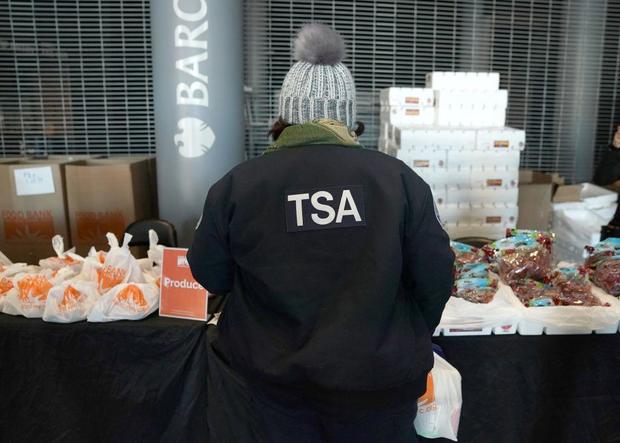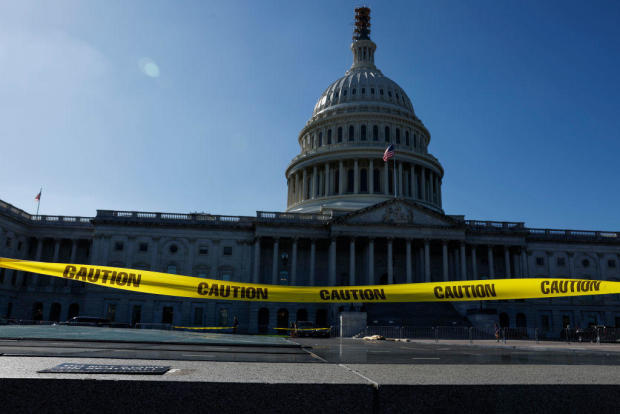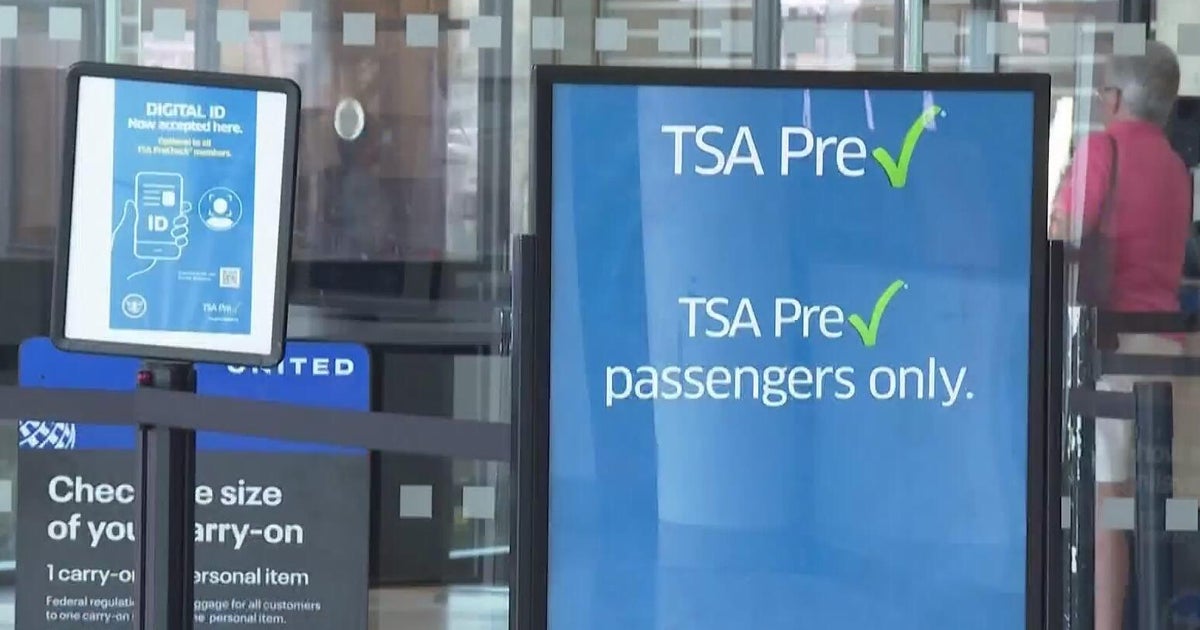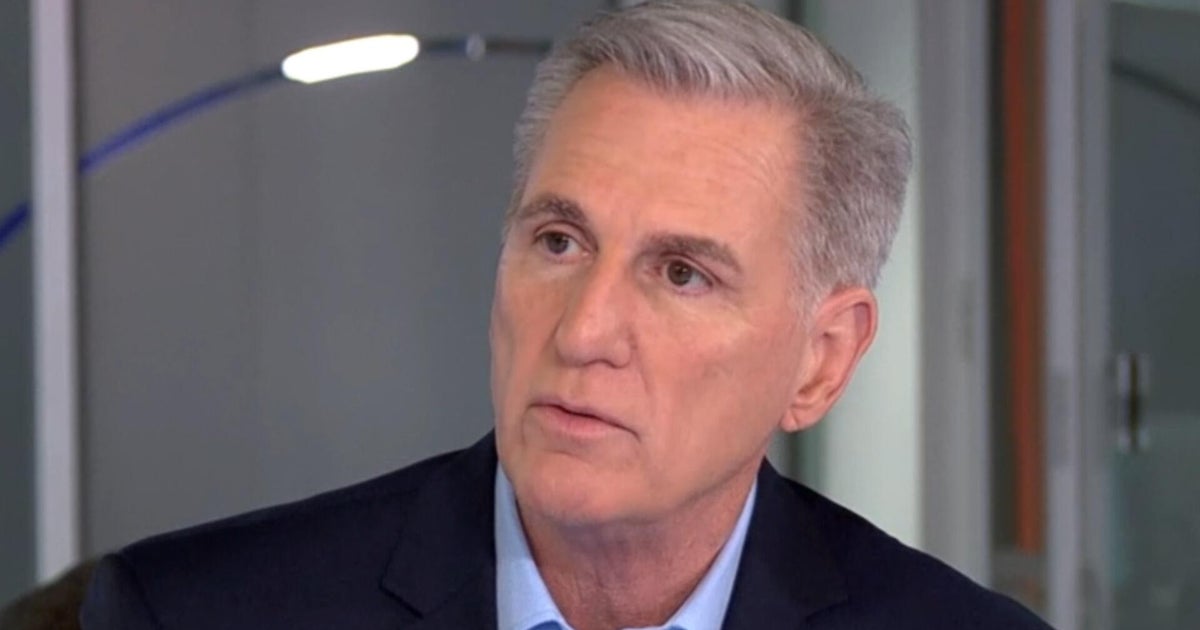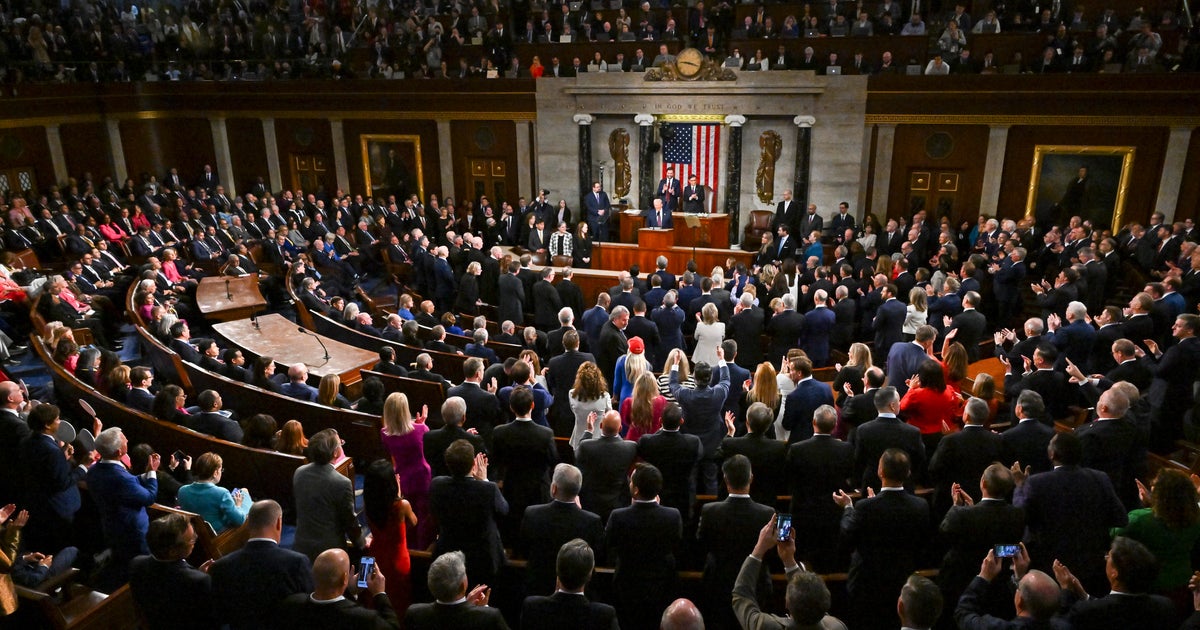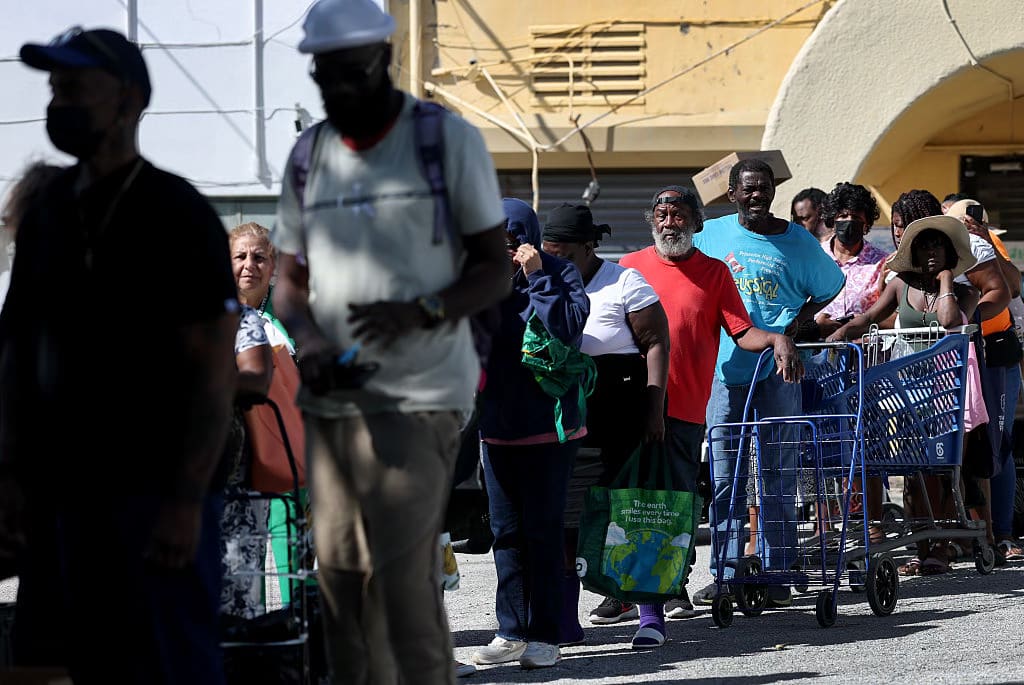Federal agencies detail impacts of government shutdown
Washington — More than 1.3 million active-duty military members and thousands of air traffic controllers and TSA agents would have to work without pay during a government shutdown, a prospect that was avoided thanks to a last-minute deal Saturday brokered by House Speaker Kevin McCarthy.
The 45-day stopgap funding bill passed the House and Senate with mere hours to spare before the midnight deadline will keep the government open through Nov. 17.
Prior to the funding bill's passage, both the Department of Homeland Security and Transportation Secretary Pete Buttigieg said a lapse in funding would severely hamper key government functions and could cause lengthy delays at airports. The White House warned that active-duty service members could have their pay delayed in the event of a shutdown, even if it lasted just a few days.
The Defense Department was not subject to the last shutdown in 2018 and 2019, since Congress passed and President Trump signed the Defense Appropriations Act two days before the end of the fiscal year. In 2013, Congress passed a one-off law just before the shutdown that ensured service members would be paid.
The impacts of a government shutdown
All departments are required to maintain contingency plans in the event of a shutdown, and the White House lists of dozen of the most up-to-date versions on its website. Agencies were expected to issue specific guidance by the end of the week. While the shutdown would have technically began early Sunday morning, most of those plans wouldn't begin to be fully implemented until Monday, the next business day.
On Thursday, DHS said nearly 72% of its massive workforce, or roughly 185,000 employees, would be kept on the job but not get paid until new spending is approved. Those affected would include Border Patrol agents, members of the U.S. Coast Guard, law enforcement agents, Transportation Security Administration workers and customs agents.
"As the third largest department of the federal government, DHS is home to hundreds of thousands of hard-working individuals devoted to public service," the department said in a fact sheet. "A shutdown would affect every member of the DHS community in some way, putting a strain on our team members' ability to make ends meet, put food on the table, and more."
TSA agents are among the lowest-paid federal employees, and most are required to keep working during a shutdown. Towards the end of the last funding lapse in 2019, agents began calling in sick en masse, causing wait times at checkpoints to jump over an hour at several major airports. The demonstration was credited with pressuring lawmakers and the White House to end the stand-off.
If a shutdown were to have begun Oct. 1, TSA employees would have received their last paycheck during the second week of October, but it would have been half of their normal pay.
Buttigieg, the transportation secretary, said a lapse in government funding would force the department to furlough hundreds of workers training to be air traffic controllers.
"After everything that we have been through, after all of the disruptions to air travel, especially the ones that we saw last year, we have finally seen cancellations and delays get back down to normal levels," he said at a press conference on Wednesday. "A shutdown would stop all of that progress. It would mean we would immediately have to stop training new air traffic controllers and furlough another 1,000 controllers who are already in the training pipeline."
Buttigieg said the "complexity of the hiring process" means that even a relatively short shutdown of just a few days could cause the department to miss its hiring goals for next year.
Jennifer Homendy, the chair of the National Transportation Safety Board, told CBS News that only 28 of the independent agency's 433 employees would keep working during a shutdown. Those 28 include director-level employees and board members. The remaining workers would be furloughed, including accident investigators.
Federal law says employees who are in non-essential roles are prohibited from working during a lapse in government funding. Those whose absence would endanger life or property, or whose responsibilities derive from the Constitution, are allowed to keep working. But all employees of agencies that run out of funding see their paychecks delayed, which can cause significant hardship for lower-wage workers if a shutdown drags on too long.
The impact on government contractors can be even more severe. Government agencies hire outside firms to handle an untold number of tasks, including low-wage work like office cleaning and food service. Even a short funding lapse can present myriad issues, including the delay of payments to those contractors. And unlike federal employees, contractors are not guaranteed back pay once a shutdown is over, leaving thousands in a precarious financial position.
How was the government shutdown avoided?
About three hours before a midnight deadline, the Senate overwhelmingly passed a bipartisan bill Saturday evening to keep the government funded for 45 days, on a vote of 88 to 9, just before a government shutdown was to go into effect.
The bill, which funds the government through Nov. 17, went to President Biden's desk for his signature.
"Tonight, bipartisan majorities in the House and Senate voted to keep the government open, preventing an unnecessary crisis that would have inflicted needless pain on millions of hardworking Americans," Mr. Biden said in a statement after the passage. "This bill ensures that active-duty troops will continue to get paid, travelers will be spared airport delays, millions of women and children will continue to have access to vital nutrition assistance, and so much more. This is good news for the American people."
No Democratic senators voted against the measure, with all nine no votes from Republicans.
"It's been a day full of twists and turns, but the American people can breath a sigh of relief," Senate Majority Leader Chuck Schumer said on the Senate floor after the vote. "There will be no government shutdown."
The House had passed the measure that afternoon, after McCarthy announced in the morning that he would try to push the short-term funding bill through the House with Democratic help — a move that could keep the government open but would put his speakership at risk.
The bill ultimately won support from more Democrats than Republicans in the House, with 90 Republicans voting no. Just one Democrat voted against the measure.
The House passed the bill 335-91 Saturday afternoon to fund the government for 45 days, hours before a government shutdown was to go into effect.
— Kris Van Cleave, Kathryn Krupnick and Jacqueline Kalil contributed reporting.
